Being or Not Being?
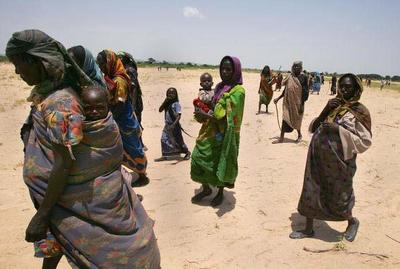
The largest single group of humans being are not being. Could we imagine a city or region 19 million persons strong? Well that is the number of refugees world-wide: persons forced, or forced to choose, to leave their homes because of war, famine or persecution. They have no place, no rights, they are not. If we include the homeless of our great cities, those living in shelters, on the sidewalks or tin-roofed shantytowns, this number explodes to how many MORE millions, or billions?
We are all under arrest.
Yet beyond this injustice that we only intermittently hear about in the media (around Christmas time, for example. Or remember Darfur, Sudan: they are still out there, for years now!) there seems to me a more universal, perhaps unacknowledged tragedy of our species: we have lost the right, the human right, to be. I believe it was Kafka who expressed succinctly: we are all under arrest.
There is a mistaken conception that so called primitive peoples, before the emergence of cities (civilisation?), somehow lived a rather “less-than” existence. Less comfortable, less intelligent, less free. That they lived shorter lives, suffered on-told difficulties and were subject to a certain barbarism. Yet if one were to compare our so-called modern way of life (even the middle-class in USA suffers from an incredible and subliminal angst of falling, of just barely keeping abreast of poverty), the litany of problems in our society is endless. And at the base of these problems is a lack of connectedness; of an unrealisable existential human prerequisite of place, of being. We can’t just BE.
Paradise lost You can’t live without money.
You can’t live without money.
I don’t know how to stop the wars.
I am not allowed to travel without a passport.
I haven’t the right to smoke marijuana.
I am not allowed to take my clothes off.
In this five phrases, these five prohibitions (from Paradise Now of The Living Theatre), we can perhaps feels the state of arrest in which we live. So obvious these phrases are as to easily pass our scrutiny. Looking at just one: the gates of Paradise are closed, we cannot move freely across the borders and fences that separate peoples and lands; a ridiculous piece of paper, tied to governments, nation-states and the money system is my only ticket. And without money I cannot be: I cannot have a home, a room of my own, a piece of earth; cannot, in USA especially, even stay on the sidewalk.
(Footnote: we do see an explosion of “nakedness’ on the Internet where the average Joe, or Mary, all too easily reveals everything. Yet this “freedom” seems to be a rather pathetic expression of a society bored with itself, with too much ample leisure, expressing perhaps distortedly natural desires and needs that have been repressed in modern life. The rite of Saturnalia was an seasonal orgiastic event of old cultures that expressed and liberated this need. But it was holy.)
Accepting life on life’s terms.
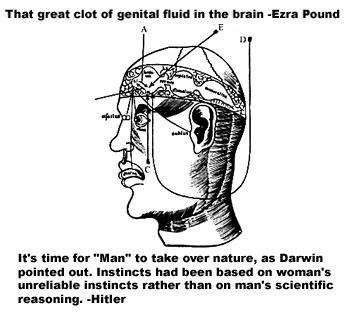
Life on life's terms: a magical phrase of 12-step programs, having much in common with yoga, Buddhism and other spiritual disciplines. Yet, there is a point in everyone’s life when we realise that we are indeed under arrest. From adolescence onward we see that the game is over, that we have to leave behind us the joys, hopes and camaraderies of youth. We suddenly discover in our parent’s downtrodden spirits, in their almost insane and automatic acquiescence to “life”, all that we must forever forsake. In short, we grow up. (See Growing Up Adsurd, by Paul Goodman.) Many do not make the transition. Some refuse and pay often a heavy price in suicide or “madness”.
Judith Malina in "Paradise Now"

Again in ancient societies this transition was ritualised, made sacred, heroic. A young man or woman became integrated into the tribe, her place was structured, perhaps dauntingly so. One can easily ask today: how are our teenagers integrated into modern life? Our ritualised events too easily become the fodder of the prevailing winds of commercialism (MTV), nationalism (and its consequent militarism), religious extremism (evangelical also!) or the competitiveness of commercial sports (where we become only spectators).
What’s all this about? If we want to understand the root causes of the mess we call modern times (and its antidote), then the answers lie in an anthropological analysis of the transition from tribal life to city life (Quickly Gary, before the last existing tribes become the domain of Disneyland!) At a certain point groups of strong men, each probably led my one convincing and terribly strong and violent man, decided that they could take advantage of new advances in agriculture (that created abundance and surplus), and to make a long story short, created the city-state and a class (slave) system. Then generation after generation came to believe its lies and forms (that they were natural), and that this was the only secure and right way to live: the rule of class, law and money, enforced by the violence of the state. Then Alexander the Great (among others) conquered half the known world (the other half lived on in the Americas), destroying tribe after tribe, creating more or less the situation we have today. Granted this is a gross simplification (see Thom Hartmann for a more detailed study), yet indicates directions, tendencies and experiments already tested or in practice.
The holy people
Where is the holy man (or woman) today? Are they to be found in the bad girls and boys of MTV? (Hats off to Eminem and his anti-Bush video!) Are the communes and communities, the free love, music and experiments of the sixties finished, to be seen only in pale and sad commercial enterprises like Woodstock II? Is there a holy people out there?
Suffice it to say: “Yes” they (we) are out there in their temporary autonomous zones. (Required reading: TAZ by Hakim Bay.) The gist of this is that we must become holy: we must link up to the experiments that are still happening, Rainbow Family, Campo Carlo (here in Italy), or create anew our sacred societies. We cannot wait for a revolution but must create these free spaces now; we must create examples in our art and street theatre and in our protests for the next generation of rebellious teens; we must follow the visionary poets (see my video, Living Poetry) and rappers (non-commercial!); or, we must walk the earth...
a Sadhus in India
“…this time however I come as the victorious Dionysus, who will turn the world into a holiday…Not that I have much time…”
Nietzsche
On a personal note.
Householder: in yoga is a person who maintains a family, a home. The opposite are these wandering holy men and women, (the way of a Buddha, a Mohammed, a Jesus). These you find still in India (the sadhus, the wandering hermits). They renounce all ties to place, they embrace the ALL place. The TerraPiena (Full Earth). The entire earth becomes home.
I refer to these exemplary figures, NOT because I consider myself one of them: far from it! Yet at a certain point, one begins to ask how can we best confront this horrible and cruel system. And a certain confluence of events in my life- lack of work, expensive rent, inability or incapability of founding or finding my tribe, has led me to a point where once again I am packing up my belongings (very little indeed besides books) and leaving my keys with the landlord and setting off down the road.

Perhaps if more of us refused to pay the Pied-Piper of private property; if we cut our ties to work, landlord, taxes, automobiles, electricity, non-organic food, meat, pharmaceuticals, cell phones, (Internet?); if we refused the city and its ordering principles of class and law; if we left western privileges behind and set out to volunteer our time with those doing work in, for example, Afghanistan (Emergency); if we successfully created new tribes, far from cities; if our art was focused on the struggle for existence of those who can’t PAY for art, and we only brought our art to them; if we stopped watching TV or buying the news of mass corporate media; if we stopped voting; if we stopped trying to be rich, famous and successful through the system that grants riches and fame; if more of us simply appeared, jut showed up- (just being)- well, changes would occur! (I am not anti-technology per se, or proposing a false primitivism. These are rather strategies of resistance: perhaps we must live a period of refusal, as a way of protest in order to take responsibility for the technologies we choose to use.)
Pygmy tribal group
Lastly, there has to be nourished a simple idea that we are one family on this earth: that we must see the other as brother and sister; that yes, some of us are trapped in cycles of hate, violence and revenge, but like in our own homes, brothers may fight, may passionately disagree yet they do not resort to killing, and indeed take responsibility, each for the other. There is relatedness based in respect for kinship, recognition and value, because they are family. And it is this that must be nurtured among the greater human family.
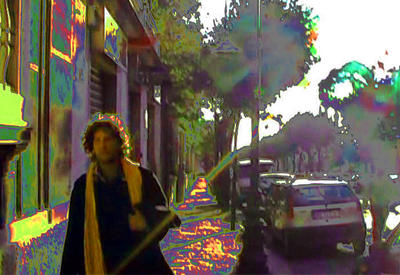

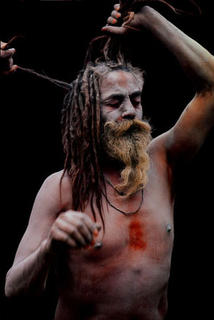
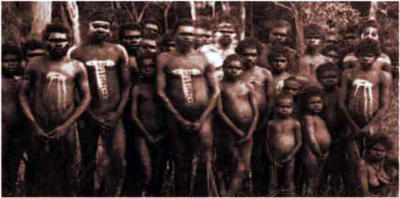
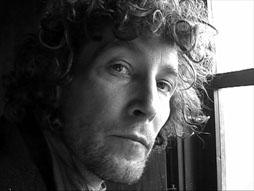


2 Comments:
"I am not allowed to take my clothes off."
Come to my kingdom and you are free to bare all. But...
For my eyes only.
That essay was an excursion of the museum of Mankind.
Why were the Pygmies covering their private parts from the cameras. Reflex action of intuitive defence of their privacy?
You are quite a tutor.
In our village, we bathe stark naked in the village streams and rivers. Both male and female.
There is still no power supply or pipe borne water supply. We use oil lanterns, hurricane lamps or candles in the night and we fetch water from the wells, streams and rivers.We also eat dogs.And most of our girls and women don't wear bra. And you can have sex with as many consenting maidens as many times as you wish. Fornication is an alien word here. But, adultery is an abomination.
Our village is in the jungle and I always escape from the city to go and live in the state of nature in our village. I enjoy the freedom.
Well, I would like to come to your magic kingdom! To play, swim, perform....
I am not sure why the pygmies are covering themselves- maybe they were told to do so. But I like their gaze.
I hope your dogs were free and happy before they got eaten! I never met a dog that I wanted to eat!(But a few people yes...)Keep on blogging!
Post a Comment
<< Home